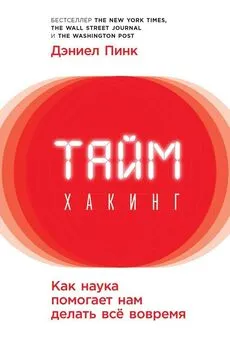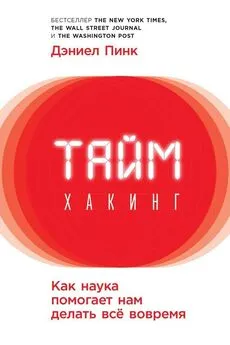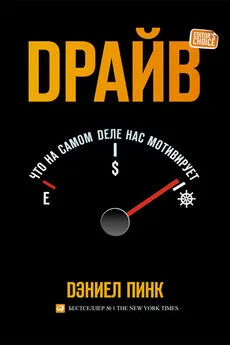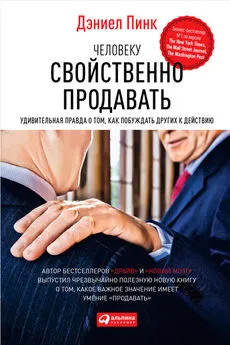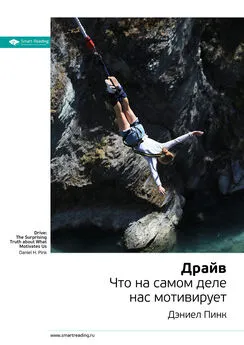Дэниель Пинк - Таймхакинг. Как наука помогает нам делать всё вовремя
- Название:Таймхакинг. Как наука помогает нам делать всё вовремя
- Автор:
- Жанр:
- Издательство:Литагент Альпина
- Год:2018
- Город:Москва
- ISBN:978-5-9614-1515-5
- Рейтинг:
- Избранное:Добавить в избранное
-
Отзывы:
-
Ваша оценка:
Дэниель Пинк - Таймхакинг. Как наука помогает нам делать всё вовремя краткое содержание
Таймхакинг. Как наука помогает нам делать всё вовремя - читать онлайн бесплатно ознакомительный отрывок
Интервал:
Закладка:
241
См., например: Marco Pinfari, “Time to Agree: Is Time Pressure Good for Peace Negotiations?” Journal of Conflict Resolution 55, no. 5 (2011): 683–709.
242
Ed Diener, Derrick Wirtz, and Shigehiro Oishi, “End Effects of Rated Life Quality: The James Dean Effect,” Psychological Science 12, no. 2 (2001): 124–128.
243
Daniel Kahneman et al., “When More Pain Is Preferred to Less: Adding a Better End,” Psychological Science 4, no. 6 (1993): 401–405; Barbara L. Fredrickson and Daniel Kahneman, “Duration Neglect in Retrospective Evaluations of Affective Episodes,” Journal of Personality and Social Psychology 65, no. 1 (1993): 45–55; Charles A. Schreiber and Daniel Kahneman, “Determinants of the Remembered Utility of Aversive Sounds,” Journal of Experimental Psychology: General 129, no. 1 (2000): 27–42.
244
Donald A. Redelmeier and Daniel Kahneman, “Patients’ Memories of Painful Medical Treatments: Real-Time and Retrospective Evaluations of Two Minimally Invasive Procedures,” Pain 66, no. 1 (1996): 3–8.
245
Daniel Kahneman, Thinking, Fast and Slow (New York: Farrar, Straus and Giroux, 2011), 380.
246
George F. Loewenstein and Dražen Prelec, “Preferences for Sequences of Outcomes,” Psychological Review 100, no. 1 (1993): 91–108; Hans Baumgartner, Mita Sujan, and Dan Padgett, “Patterns of Affective Reactions to Advertisements: The Integration of Moment-to-Moment Responses into Overall Judgments,” Journal of Marketing Research 34, no. 2 (1997): 219–232; Amy M. Do, Alexander V. Rupert, and George Wolford, “Evaluations of Pleasurable Experiences: The Peak-End Rule,” Psychonomic Bulletin & Review 15, no. 1 (2008): 96–98.
247
Andrew Healy and Gabriel S. Lenz, “Substituting the End for the Whole: Why Voters Respond Primarily to the Election-Year Economy,” American Journal of Political Science 58, no. 1 (2014): 31–47; Andrews Healy and Neil Malhotra, “Myopic Voters and Natural Disaster Policy,” American Political Science Review 103, no. 3 (2009): 387–406.
248
George E. Newman, Kristi L. Lockhart, and Frank C. Keil, “‘End-of-Life’ Biases in Moral Evaluations of Others,” Cognition 115, no. 2 (2010): 343–349.
249
George E. Newman, Kristi L. Lockhart, and Frank C. Keil, “‘End-of-Life’ Biases in Moral Evaluations of Others,” Cognition 115, no. 2 (2010): 343–349.
250
Tammy English and Laura L. Carstensen, “Selective Narrowing of Social Networks Across Adulthood Is Associated with Improved Emotional Experience in Daily Life,” International Journal of Behavioral Development 38, no. 2 (2014): 195–202.
251
Laura L. Carstensen, Derek M. Isaacowitz, and Susan T. Charles, “Taking Time Seriously: A Theory of Socioemotional Selectivity,” American Psychologist 54, no. 3 (1999): 165–181.
252
Laura L. Carstensen, Derek M. Isaacowitz, and Susan T. Charles, “Taking Time Seriously: A Theory of Socioemotional Selectivity,” American Psychologist 54, no. 3 (1999): 165–181.
253
К сходным выводам приходили и другие исследователи. См., например: Frieder R. Lang, “Endings and Continuity of Social Relationships: Maximizing Intrinsic Benefits Within Personal Networks When Feeling Near to Death,” Journal of Social and Personal Relationships 17, no. 2 (2000): 155–182; Cornelia Wrzus et al., “Social Network Changes and Life Events Across the Life Span: A Meta-Analysis,” Psychological Bulletin 139, no. 1 (2013): 53–80.
254
Laura L. Carstensen, Derek M. Isaacowitz, and Susan T. Charles, “Taking Time Seriously: A Theory of Socioemotional Selectivity,” American Psychologist 54, no. 3 (1999): 165–181.
255
Angela M. Legg and Kate Sweeny, “Do You Want the Good News or the Bad News First? The Nature and Consequences of News Order Preferences,” Personality and Social Psychology Bulletin 40, no. 3 (2014): 279–288; Linda L. Marshall and Robert F. Kidd, “Good News or Bad News First?” Social Behavior and Personality 9, no. 2 (1981): 223–226.
256
Angela M. Legg and Kate Sweeny, “Do You Want the Good News or the Bad News First? The Nature and Consequences of News Order Preferences,” Personality and Social Psychology Bulletin 40, no. 3 (2014): 279–288.
257
См., например: William T. Ross, Jr., and Itamar Simonson, “Evaluations of Pairs of Experiences: A Preference for Happy Endings,” Journal of Behavioral Decision Making 4, no. 4 (1991): 273–282. Правда, подобные предпочтения не всегда носят позитивный характер. Так, на скачках люди обычно делают больше рискованных ставок в последнем заезде дня. Они надеются на эффектную концовку, но обычно это оборачивается еще более отощавшим бумажником. См.: Craig R. M. McKenzie et al., “Are Longshots Only for Losers? A New Look at the Last Race Effect,” Journal of Behavioral Decision Making 29, no. 1 (2016): 25–36. См. также: Martin D. Vestergaard and Wolfram Schultz, “Choice Mechanisms for Past, Temporally Extended Outcomes,” Proceedings of the Royal Society B2 82, no. 1810 (2015): 20141766.
258
Ed O’Brien and Phoebe C. Ellsworth, “Saving the Last for Best: A Positivity Bias for End Experiences,” Psychological Science 23, no. 2 (2012): 163–165.
259
Robert McKee, Story: Substance, Structure, Style, and the Principles of Screenwriting (New York: Reagan Books/HarperCollins, 1997), 311.
260
John August, “Endings for Beginners,” Scriptnotes podcast 44, July 3, 2012. (Электронная версия: http://scriptnotes.net/endings-for-beginners.)
261
Hal Hershfield et al., “Poignancy: Mixed Emotional Experience in the Face of Meaningful Endings,” Journal of Personality and Social Psychology 94, no. 1 (2008): 158–167.
262
Jon Bischke, “Entelo Study Shows When Employees Are Likely to Leave Their Jobs,” October 6, 2014. (Электронная версия: https://blog.entelo.com/new-entelo-study-shows-when-employees-are-likely-to-leave-their-jobs.)
263
Robert I. Sutton, Good Boss, Bad Boss: How to Be the Best… and Learn from the Worst (New York: Business Plus/Hachette, 2010). Этот ужасный начальник вполне может быть по-человечески несчастен. См.: Trevor Foulk et al., “Heavy Is the Head That Wears the Crown: An Actor-Centric Approach to Daily Psychological Power, Abusive Leader Behavior, and Perceived Incivility,” Academy of Management Journal 60.
264
Patrick Gillespie, “The Best Time to Leave Your Job Is…,” CNN Money , May 12, 2016. (Электронная версия: http://money.cnn.com/2016/05/12/news/economy/best-time-to-leave-your-job/.)
265
Peter Boxall, “Mutuality in the Management of Human Resources: Assessing the Quality of Alignment in Employment Relationships,” Human Resource Management Journal 23, no. 1 (2013): 3–17; Mark Allen Morris, “A Meta-Analytic Investigation of Vocational
Interest-Based Job Fit, and Its Relationship to Job Satisfaction, Performance, and Turnover,” PhD diss., University of Houston, 2003; Christopher D. Nye et al., “Vocational Interests and Performance: A Quantitative Summary of over 60 Years of Research,” Perspectives on Psychological Science 7 , no. 4 (2012): 384–403.
266
Deborah Bach, “Is Divorce Seasonal? UW Research Shows Biannual Spike in Divorce Filings,” UW Today, August 21, 2016. (Электронная версия: http://www.washington.edu/news/2016/08/21/is-divorce-seasonal-uw-research-shows-biannual-spike-in-divorce-filings/.)
267
Claire Sudath, “This Lawyer Is Hollywood’s Complete Divorce Solution,” Bloomberg Businessweek, March 2, 2016.
268
Teresa Amabile and Steven Kramer, The Progress Principle: Using Small Wins to Ignite Joy, Engagement, and Creativity at Work (Boston: Harvard Business Review Press, 2011).
269
Jesse Singal, “How to Maximize Your Vacation Happiness,” New York, July 5, 2015.
270
Suketu Mehta, Maximum City: Bombay Lost and Found (New York: Vintage, 2009), 264.
271
Ian R. Bartky, Selling the True Time: Nineteenth-Century Timekeeping in America (Stanford, CA: Stanford University Press, 2000).
272
Deborah G. Ancona and Chee-Leong Chong, “Timing Is Everything: Entrainment and Performance in Organization Theory,” Academy of Management Proceedings 1992, no. 1 (1992): 166–169. См. также работы социального психолога из Мичиганского университета, предвосхитившего это направление научной мысли: Joseph E. McGrath, “Continuity and Change: Time, Method, and the Study of Social Issues,” Journal of Social Issues 42, no. 4 (1986): 5–19; Joseph E. McGrath and Janice R. Kelly, Time and Human Interaction: Toward a Social Psychology of Time (New York: Guilford Press, 1986); Joseph E. McGrath and Nancy L. Rotchford, “Time and Behavior in Organizations,” in L. L. Cummings and Barry M. Staw, eds., Research in Organizational Behavior 5 (Greenwich, CT: JAI Press, 1983), 57–101.
273
Ken-Ichi Honma, Christina von Goetz, and Jürgen Aschoff, “Effects of Restricted Daily Feeding on Freerunning Circadian Rhythms in Rats,” Physiology & Behavior 30, no. 6 (1983): 905–913.
274
Анкона определяет организационный захват ритма как «корректировку или модерацию одного типа поведения с целью синхронизации или ритмического соответствия с другим типом поведения» и утверждает, что он может быть «сознательным, подсознательным или инстинктивным».
275
Till Roenneberg, Internal Time: Chronotypes, Social Jet Lag, and Why You’re So Tired (Cambridge, MA: Harvard University Press, 2012), 249.
276
Ya-Ru Chen, Sally Blount, and Jeffrey Sanchez-Burks, “The Role of Status Differentials in Group Synchronization” in Sally Blount, Elizabeth A. Mannix, and Margaret Ann Neale, eds., Time in Groups , vol. 6 (Bingley, UK: Emerald Group Publishing, 2004), 111–113.
Читать дальшеИнтервал:
Закладка:
